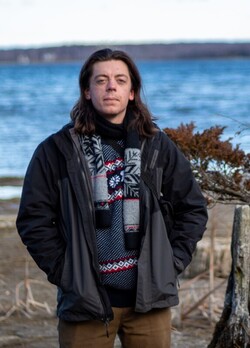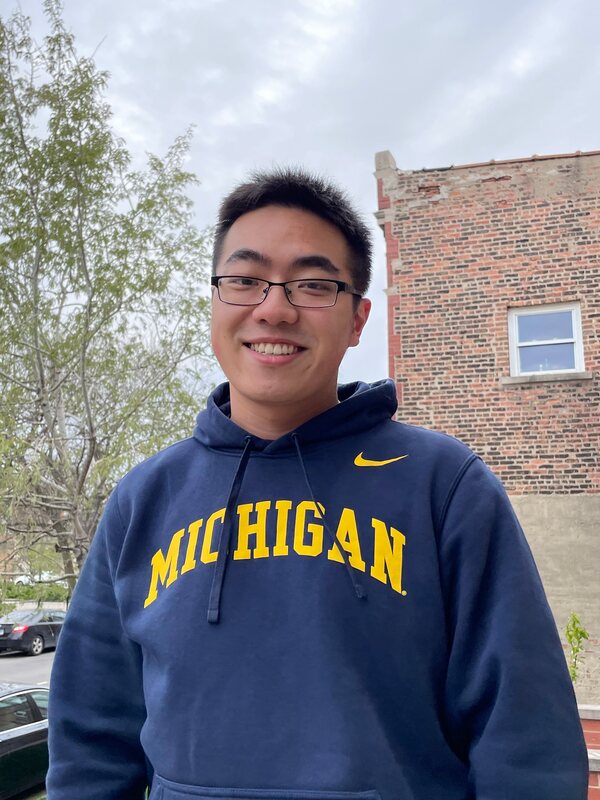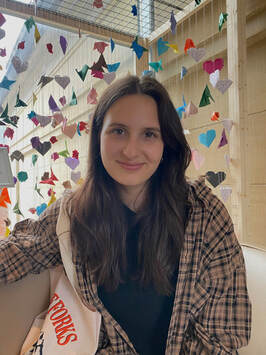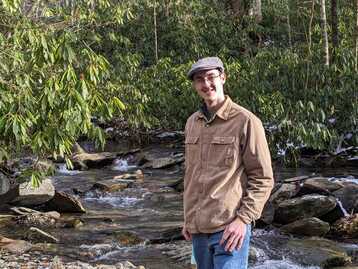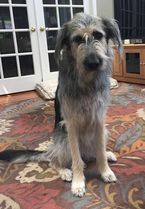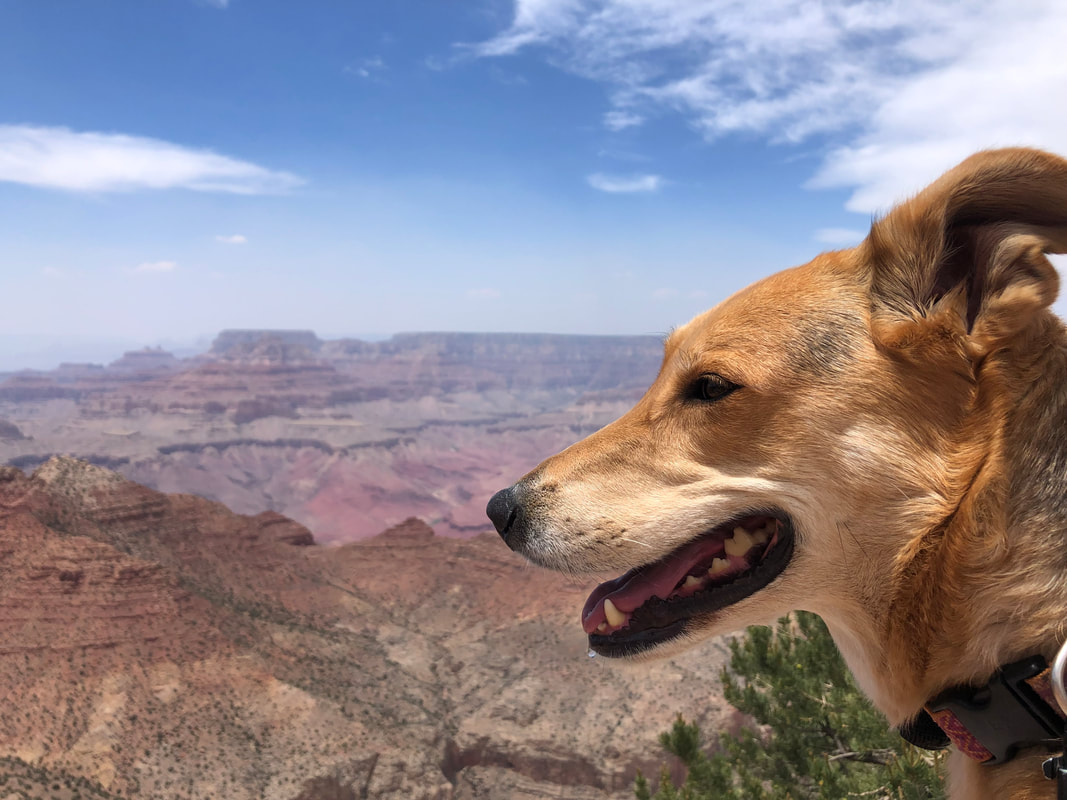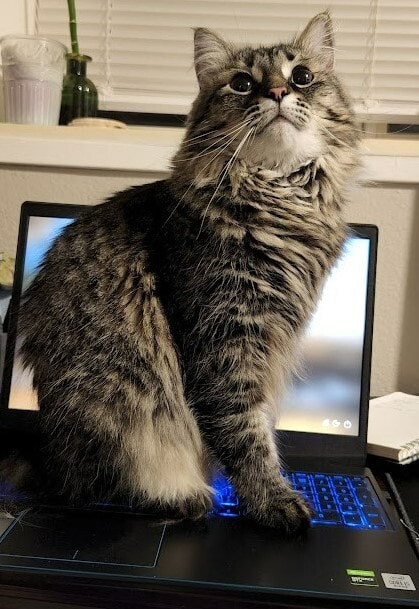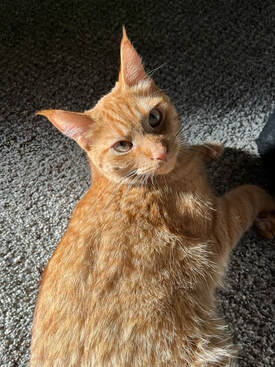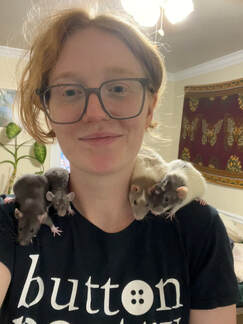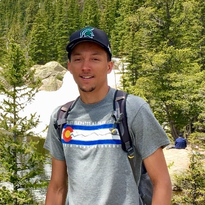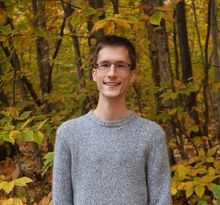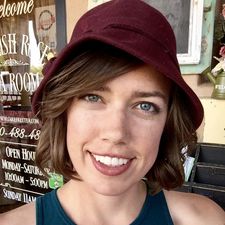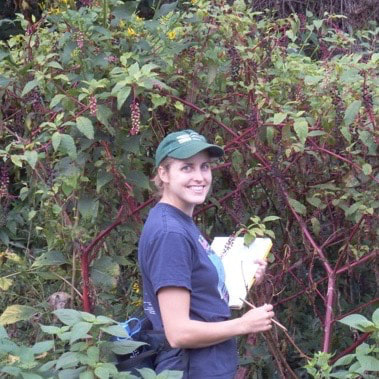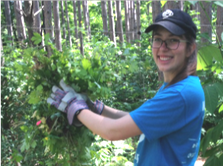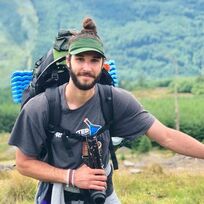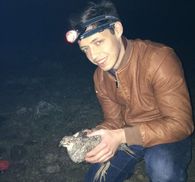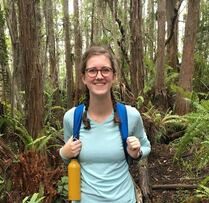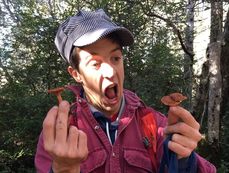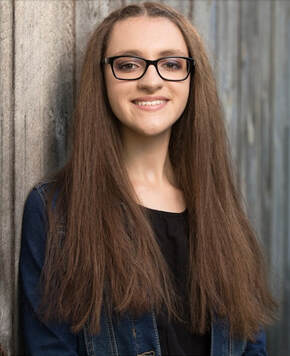Home Research People Publications Diversity in STEM Join us!
People
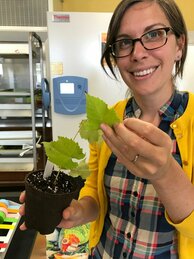
Marjorie Weber (PI, pronouns: she/her)
I am an evolutionary ecologist, interested in how ecological interactions impact phenotypic evolution and diversification across evolutionary scales. My research focuses on interactions between plants and arthropods, and evaluates hypotheses that link plant-arthropod interactions with macroevolutionary patterns. I work in many systems, including ant-plant and ant-mite mutualisms, plant defense, and plant-pollination interactions. I am particularly interested in understanding the role that species interactions play in the evolution of bizarre phenotypes, such as flowers, chemical defenses, or the fascinating structures found on plants that attract and retain arthropod bodyguards. I also have a passion for promoting social justice and equity in STEM, and work to understand and implement change through education.
Email: webermg(at)umich.edu
Google scholar profile
CV
I am an evolutionary ecologist, interested in how ecological interactions impact phenotypic evolution and diversification across evolutionary scales. My research focuses on interactions between plants and arthropods, and evaluates hypotheses that link plant-arthropod interactions with macroevolutionary patterns. I work in many systems, including ant-plant and ant-mite mutualisms, plant defense, and plant-pollination interactions. I am particularly interested in understanding the role that species interactions play in the evolution of bizarre phenotypes, such as flowers, chemical defenses, or the fascinating structures found on plants that attract and retain arthropod bodyguards. I also have a passion for promoting social justice and equity in STEM, and work to understand and implement change through education.
Email: webermg(at)umich.edu
Google scholar profile
CV
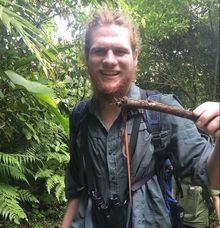
Bruce Martin (PhD student, he/him)
I am broadly interested in understanding the factors underlying disparities in biodiversity across space and taxa, and I believe integrating phylogenetics with studies of ecological patterns and processes can greatly contribute to this goal. Prior to joining the Weber Lab, I earned my B.A. in biology at Skidmore College. My undergraduate research experiences constitute an eclectic mix, including projects focused on porpoise skull morphology, avian malaria, social wasp-mediated pest control, and ant social immunity. Though my academic interests remain broad and flexible, I am especially fascinated by plant-insect interactions due to their diversity and accessibility as model ecological systems which can be placed in larger evolutionary contexts. 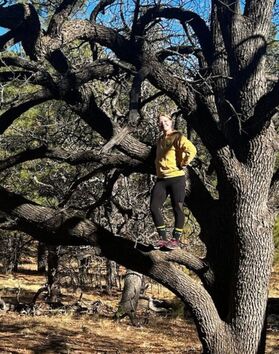
Abbey Soule (PhD Student, she/her)
Plants and insects make up the vast majority of terrestrial biomass, and therefore understanding the interactions between them are vital to understanding the natural world; it is in these interactions that my research interests lie. I am particularly fascinated by the myriad chemical defenses employed by plant life and the adaptations insect herbivores have developed as a result. Prior to graduate school, I explored monarch butterfly flight ability in the context of global change, and studied the evolution of chemical defense in tropical trees. My dissertation research utilizes modern metabolomics methods to explore the chemical ecology of plant-insect interactions across gradients of latitude, elevation, and climate. I am also a passionate social activist. At the University of Michigan, I have founded bI/O (https://bioio.org/), a science seminar series in Michigan prisons where scientists from various career stages in the EEB department discuss their research and career path with incarcerated students. I strongly believe scientific knowledge should be for all, and I hope to expand this work to other academic institutions. Outside of research and outreach, I sing in a barbershop chorus and quartet, spend time outdoors, and care for my many pets (pictured below). 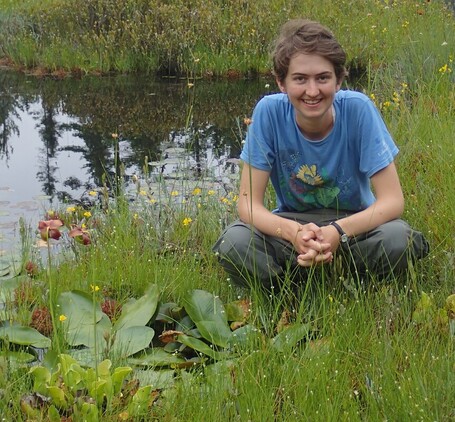
Sylvie Martin-Eberhardt (PhD Student - co-advised with the Gilbert lab, they/them)
I am a plant-insect evolutionary ecologist with a special interest in non-floral red plant structures. I study red coloration in ant-plant mutualisms, herbivory, and especially plant carnivory. Co-advised by Dr. Marjorie Weber at University of Michigan, I use field and herbarium studies to work out plant-insect natural history and answer broader questions about plant-insect signaling and plant defense. Chris Talbot (Lab Technician)Charlie Zhang (Undergraduate Researcher) |
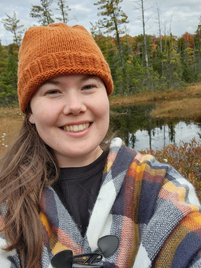
Carolyn Graham (PhD Student, she/her)
My academic interests include plant defense evolution, plant-insect interactions, mutualisms, and chemical ecology. I love testing broad evolutionary hypotheses using phylogenetic comparative methods paired with experimental manipulations. I graduated from Michigan State in 2019 with a B.S. in Biochemistry and Molecular Biology, and a minor in the History, Philosophy, and Sociology of Science. I then spent a year as a technician in the Weber Lab, working on a research project about whether indirect and direct defensive traits in the grape genus Vitis trade-off over evolutionary time. As a PhD student, I have continued studying defensive trait evolution in Vitis, expanding my perspective to capture a larger suite of traits that arthropods interact with on a grapevine. In my undergraduate work, I was involved in projects studying how microarthropods and their mutualistic interactions with plants are impacted by habitat fragmentation, and how plant defense investment compares across geographic scales. 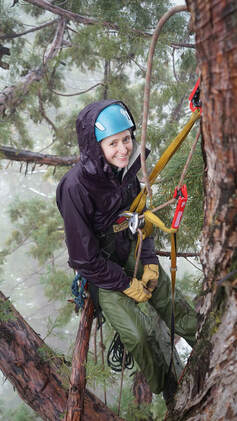
Rosemary Glos (PhD Student, she/her)
I am a botanist and evolutionary ecologist with an interest in the ways that plant morphology and anatomy mediate interactions with other organisms. I earned my B.S. in plant sciences from Cornell University in 2020 and spent the following year as a research technician and lab manager in the Onyenedum Lab at Cornell. My PhD research is focused on the ecological and evolutionary drivers of complex trichome (hair) morphology in the plant family Loasaceae. This family has the most complex suite of hairs seen in any plant group (stinging, barbed, glandular and more!) but we know surprisingly little about their exact function and evolutionary patterns. My second passion is botanical illustration, so I often seek out projects that merge art and science. Outside of research, I enjoy skating for Ann Arbor Roller Derby, climbing big trees with ropes, and hunting for cool plants in the wild. 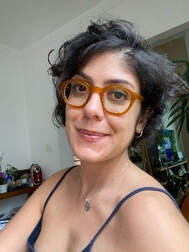
Marianne Azevedo Silva (Postdoc, she/her)
Growing up in Brazil made me an ecologist fascinated with biodiversity at distinct biological levels and spatial scales! I seek to understand environmental and biotic factors that may explain distributions of biodiversity. Although my work is mainly focused on ants, I have a broad interest in other biological systems (if the question is exciting, so is the system!). I earned my B. S., Master’s, and Doctoral degree at UNICAMP in Brazil. As an undergrad, I worked with integrative taxonomy. During the Master’s, I worked on ant intraspecific genetic diversity at colony and population levels, with a particular focus on how landscapes influence species gene flow. During my PhD, I worked with ant-plant interactions along a latitudinal gradient in the Brazilian Cerrado Savanna, focusing on how environmental heterogeneity, resource availability, as well as ant and plant community traits may influence: ant presence on vegetation, functional trait variation and genetic diversity. I am currently a postdoc in the Weber Lab seeking to understand patterns and potential factors underlaying mite-plant interactions along a latitudinal gradient in US. For this purpose, I will integrate multiple approaches, including field and herbarium data sampling, molecular tools, and phylogenetic analyses. Samme Molino (Undergraduate Researcher)Joseph Robinson (Lab Technician)Addison Yerks (Undergraduate Researcher) |
Lab Collaborators:
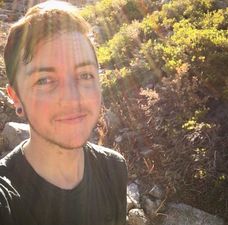
Ash Zemenick (Lab collaborator - Director of Project Biodiversify )
I am a community ecologist interested in plant-arthropod interactions, and their role in structuring microbial communities. For my PhD I worked to disentangle how the structure of plant-flower visitor interactions varies for different types of flower visitors, and the implications of varying structure for floral microbe communities. During my post doc, I will be studying how plant-mite interactions directly and indirectly influence leaf microbial communities and subsequent invasibility by pathogens. I will also be working on building a repository of introductory biology teaching material that humanizes the field of biology and biologists. It will include how biological research applies to current societal problems and highlight what it is like to be a biologist. The materials will be composted of examples provided by biologists that self-identify as being part of underrepresented group(s) in STEM (e.g. in terms of race, ethnicity, gender, sex, sexuality, income, nationality, immigrant status, cognitive and physical ability, etc.). website: http://ashzemenick.weebly.com/ Google scholar Profile |

Liz Schultheis (Lab collaborator - Co-founder of Data Nuggets)
I am a co-founder of Data Nuggets, an innovative approach to bring cutting edge research and authentic data into K-16 classrooms. My work includes plant biology and science education research, grant writing, curriculum development, running training workshops for scientists focused on science communication, and teacher professional development. My PhD is in Plant Biology and EEBB, advised by Jen Lau at MSU’s Kellogg Biological Station. 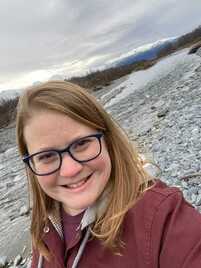
Melissa Kjelvik (Lab collaborator - Co-founder of Data Nuggets, she/her)
I am formally trained in behavioral ecology (consequences of individual differences in foraging behavior), but have 10+ years of informal training in science education. I am a co-founder of the Data Nuggets program, which brings contemporary research and role models into K-16 classrooms. I am currently working with Marjorie and Ash, along with collaborators at Auburn University through an NSF IUSE grant: “Diversifying and humanizing scientist role models to increase the impact of data literacy instruction on student interest and retention in STEM.” I am excited to strengthen the collaboration between Data Nuggets and Project Biodiversity to increase representation in STEM classes! |
Honorary members:

Eloise Wolf (Co-advised with Bradburd Lab)
Lou's research is focused on developing new forms of dance, notions of personal property and, concurrently, the ability to share that property (work ongoing). Future research plans include sleeping in a little bit later on weekends.
Lou's research is focused on developing new forms of dance, notions of personal property and, concurrently, the ability to share that property (work ongoing). Future research plans include sleeping in a little bit later on weekends.
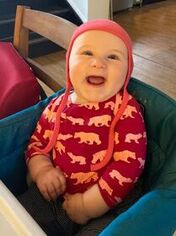
Abraham Oak (Co-advised with Bradburd Lab)
Abe's research is focused on developing rudimentary motor control and (parental fingers desperately crossed) circadian sleep rhythms.
Abe's research is focused on developing rudimentary motor control and (parental fingers desperately crossed) circadian sleep rhythms.
Lab alumni:
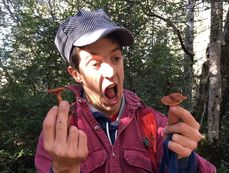
Paige Trevillian (Undergraduate Researcher,2022-2023)
Andrew Myers (Postdoc, 2019-2022)
Daniel Anstett (Postdoc, 2021-2022)
Margaret Fleming (Postdoc, 2019-2021)
Caroline Edwards (Lab Tech, 2018-2020)
Erika LaPlante (Graduate Student, 2017-2020)
Michael Foisy (Graduate Student, 2018-2020)
Eric LoPresti (NSF Postdoctoral Fellow, 2017-2020)
Susan Gordon (Lab tech, 2016-2017)
Keegan Mackin (Undergraduate researcher, 2016-2018)
Ellen James (Undergraduate Summer Research Assistant at Kellogg Biological Station, 2018)
Katy Garber (Research assistant, summer 2017)
Abby Sulesky (Undergraduate researcher, 2016-2018)
Lucy Schroeder (Undergraduate researcher, 2016-2018)
Dan Hughes (Lab tech, 2017-2019)
Carina Baskett (PhD Student - Co-advised with Doug Schemske, Graduated 2018)
Riley Scanlon (Undergraduate Artist in Residence 2019- 2020)
Thomas Zambiasi (Undergraduate Researcher 2018-2020)
Aaron Slater (Undergraduate Researcher and Project Biodiversify Intern 2019-2020)
Andrew Myers (Postdoc, 2019-2022)
Daniel Anstett (Postdoc, 2021-2022)
Margaret Fleming (Postdoc, 2019-2021)
Caroline Edwards (Lab Tech, 2018-2020)
Erika LaPlante (Graduate Student, 2017-2020)
Michael Foisy (Graduate Student, 2018-2020)
Eric LoPresti (NSF Postdoctoral Fellow, 2017-2020)
Susan Gordon (Lab tech, 2016-2017)
Keegan Mackin (Undergraduate researcher, 2016-2018)
Ellen James (Undergraduate Summer Research Assistant at Kellogg Biological Station, 2018)
Katy Garber (Research assistant, summer 2017)
Abby Sulesky (Undergraduate researcher, 2016-2018)
Lucy Schroeder (Undergraduate researcher, 2016-2018)
Dan Hughes (Lab tech, 2017-2019)
Carina Baskett (PhD Student - Co-advised with Doug Schemske, Graduated 2018)
Riley Scanlon (Undergraduate Artist in Residence 2019- 2020)
Thomas Zambiasi (Undergraduate Researcher 2018-2020)
Aaron Slater (Undergraduate Researcher and Project Biodiversify Intern 2019-2020)
